To read the article “Employers buy into ‘Netflixisation’ of executive education” published in the Financial Times, it’s here!
To read the article “Employers buy into ‘Netflixisation’ of executive education” published in the Financial Times, it’s here!
3 years ago, Faurecia and Coorpacademy partnered to create the Faurecia University Learning Lab.
3 years after, this digital corporate learning initiative supports Faurecia’s digital transformation and trains more than 47,000 coworkers. Brandon Hall Group HCM Excellence Awards awarded the Learning Lab a Silver Award in Best Advance in Learning Technology Implementation: this is great recognition for the work we have been doing together for the past few years.
You can see this Award following this link : https://www.brandonhall.com/excellenceawards/excellence-learning.php?year=2018
Congratulations to the team!
This piece written by Jean-Marc Tassetto, co-founder of Coorpacademy and former Google France CEO, has been originally published on Computer Business Review. To read it in its original form, it’s here!
Coorpacademy CEO and former head of Google France Jean-Marc Tassetto on why companies serious about training need to embrace a new generation of elearning
Elearning can pretend all it likes, but its practitioners and more importantly its customers know it’s in trouble.
The current average completion rate for MOOCs, massive open online courses, averages out at a very low 15 percent, while some studies put the drop-out rates for online at about 70 percent compared with an average of 15 percent for classroom training.
That’s a lot of people not completing what you paid for, and engagement rates are perilously low, as well – our data suggests 2 to 3 percent is not uncommon for a lot of corporate training.
That turns your training budget into an expensive resource-wasting tick-boxing exercise, and also makes any attempt to convince your staff you are serious about helping reskilling them to remain competitive for a near future highly-automated fourth industrial age basically non-credible.
The reason is that we have neglected content in elearning at the expense of the way we deliver and administer it – hence the Learning Management System (LMS), which is great for the HR administrator, and less good for the learner. That’s actually critical, as no learner, no learning. As Benjamin Franklin famously said, “Tell me and I forget, show me and I remember, involve me and I learn.”
This is where traditional elearning falls down. It’s all about the telling and showing, but there is not enough involving. So do we need to jettison the LMS? No, they are a hugely useful L&D workhorse, especially in a large MNC context. But they need to be supplemented by new software tools, recently christened by Gartner as the ‘Learning Experience Platform’ (LEP).
As the analyst firm recommends, anyone who wants their team to learn the new skills they need needs to “place the learner’s experience and the solution’s usability at the top of the priority list for any new learning project. Evaluate emerging LEPs to enhance (or extend) existing LMS platforms”.
If an LMS is your training management mainstay, how does an LEP differ and more interestingly how does it secure user engagement? An LEP, according to Gartner, is an additional portal layer that expands (i.e., range of content) and enhances (i.e., personalisation) the learner’s interaction. In contrast, the LEP offers “a better learner experience through improved personalisation via adaptive learning, recommendations and individual learning paths.”
Elearning content needs to be consumer-like, intelligent and integrated into the flow of work.
After all, staff need training that informs them of business trends that are going to affect them now, or will ready them for roles they encounter in the near future, helping to build or hone skills that they may personally lack. That means eLearning needs to be directly connected to your learners’ personal goals and experiences – and even better, linked into the wider company vision to show learners how they are an integral part of the wider story.
LEPs can do this by embedding learning into the learner’s daily activities or the applications on which learners spend the most time. Once again, traditional eLearning is not up to the task here, and we need new content creation models – most likely in the form of a ‘Netflix of Learning’, elearning software that will be “consumer-like, intelligent, and integrated into the flow of work”, as Deloitte has put it.
What will that look like in practice? It looks very like what your workforce is doing in their day-to-day lives. They look for content on their phones, filling in dead time, checking out the Internet to plug any lack of understanding as soon as it is identified. To relax, they check Facebook or play a game for a minute or two.
Think of the next generation of training as very similar – mobile, always available, delivered in engaging, bite-sized bursts that only fills in gaps in your knowledge where they exist. And where appropriate, involving fun and proven engagement techniques like gamification, online competitions between learners – thus ending the isolated elearning experiences that lead to user attrition.
To shake off its current malaise and start being useful again, elearning needs to complement its existing LMS and other training support with the best of a customised LEP approach. That’s one that truly involves the learner, rather than a one-size-fits-all course that simply shows and tells her information that not only fails to engage, but fails much more critically: by not equipping her for a very complex workplace future.
This piece by Jean-Marc Tassetto, co-founder of Coorpacademy and former Google France CEO, has been published in Personnel Today. If you want to read it in its original form, it’s here!
With PwC recently predicting that artificial intelligence will replace seven million jobs by 2037, employees need to learn new skills to reduce the risk of being displaced by new technology. But Jean-Marc Tassetto, co-founder of Coorpacademy and former Google France CEO, warns the UK’s current ways of developing employees’ skills are inadequate.
By now it should come as no surprise that employees in all sectors will soon need to work alongside technologies such as artificial intelligence, with many having to change jobs or reskill as technology develops.
But in order to equip employees with the skills needed to thrive, professionals in learning and development need to create a culture that delivers life-long learning at work. This is imperative for developing the skills organisations require now and in the future, and in attracting and retaining talent.
However, there is one problem – we’re not doing it.
Learning teams provide the resources, tools and time to support skills development – considering the career plans of staff, booking the armies of trainers and making hundreds of hours of relevant content available. But many are missing the needs of the recipient.
Traditional training culture seems to assume learners are passive objects that simply get shuffled in and out of training rooms. Yet for any training to succeed, it’s essential that employees buy into the concept and stop seeing training as something forced upon them.
Corporate learning is currently in a state of crisis. According to research from Towards Maturity, 44% of L&D leaders report that staff are reluctant to engage with online learning. Engagement rates are perilously low – as little as 5-10% − and course completion rates can be as low as 2-3%, research by the University of Graz in Austria has found.
Translated into business reality, this means the small number of people who go on training courses or download company-mandated e-learning modules barely complete what HR and L&D teams think they do.
To stop corporate learning being a poor investment, this culture needs to change. In particular, if we are serious about our commitment to reskilling and upskilling workers to prepare them for the future, we need a way to connect with them as learners and find a better way to deliver what they want.
We also need to rethink the way content is delivered. We have to ask ourselves if it’s realistic to expect people to stop everything they’re doing and sit in front of a trainer with a PowerPoint presentation and a laser pointer for eight solid hours.
But change is coming and a new generation of digital tools has emerged to plug the gap between L&D teams and the disengaged learner.
Global analyst Gartner found that “learning experience platforms”, which prioritise learners’ experiences and ease of use, will become invaluable as attitudes to learning change.
Training strategies should consider the reality of how people learn; content should always be available remotely – increasingly via mobile – and at the learner’s convenience in bite-sized chunks, making use of video, gamification and collaboration.
What does that look like in practice? Very much like what employees are already doing in their day-to-day lives. We live on our phones: making dead time waiting for a train or a phone call useful, turning to the internet to plug a lack of understanding, and playing a mobile game for a few minutes to let off a bit of steam.
“Training strategies should consider the reality of how people learn; content should always be available remotely”
Imagine if you delivered your training that way – mobile, always available, in short bursts, and, where appropriate, in a quiz format? Need to know about Blockchain? Employees could either be sent on a two-day residential course once a year, or offered a way to consume five to 10 minutes of useful, tailored content when they want or need it.
This is a new, powerful and flexible way for L&D teams to help learners to reach a certain level of knowledge day by day. These methods, alongside more traditional elements, can help develop a more user-centric learning culture.
Of course face-to-face training to hone certain practical skills is still part of that user-centric model. But a customised learning experience platform approach will mean employees are more likely to be thoroughly engaged in the training they need to keep pace with the changing world of work.
This piece by Jean-Marc Tassetto, co-founder of Coorpacademy and former Google France CEO, has been published in Personnel Today. If you want to read it in its original form, it’s here!
When Johannes Gutenberg invented the printing press in the 15th century, was he aware of the impacts his brilliant invention would have on the transmission of knowledge among people and on the world’s future? Like Thomas Edison in 1879 with the invention of the electric light bulb: was he aware this invention would completely disrupt our ways of living?
What about today? Some specialists are speaking about “several simultaneous Gutenberg”. The world’s transformation gets faster everyday: the world is changing faster than it’s ever been. The evolution of information technologies brought drastic changes in business models, and new technologies such as blockchain or artificial intelligence with machine learning are making the future more and more uncertain. What will happen tomorrow? What will be the next inventions which will transform the world as we know it (like the printing press, the light bulb or the telephone in their times)? How technologies like robotics, biotechnologies or virtual reality will evolve in the coming years? Brightness comes into play to deal with this situation and try to bring answers to those questions.
The story of Brightness starts in 2009 and take its roots in the creation of TEDxParis, the first European TEDx (independent TED events). TEDxParis’ founder, Michel Lévy-Provençal, partners with Nawal Hamitouche to create Brightness. The agency’s goal is to train leaders and their teams to become actors of the world’s transformation thanks to public speaking training, but also to help them understand the stakes of upcoming innovations thanks to workshops and events. In 2013, Brightness created L’Échappée Volée, the first do-tank which puts innovation at the center of society’s common good. A do-tank, from the expression think-tank, combines intellectual work and field experimentations. For its 5th edition in July 2018, L’Échappée Volée gathered 3,000 people and 40 speakers in the Paris area (la Seine Musicale). For its founder, “L’Échappée Volée is developing talents the same way TED is spreading ideas.”
After this trade show where inspiring talks, art performances and innovations were intertwined, Brightness and Coorpacademy are releasing a new course on how to predict the future. Fast-paced transformations and ideas’ evolutions brought organizations to realize that it was riskier to have a wait-and-see approach than to experience new methods and start transformations within themselves. Those same organizations have understood than those transformations won’t happen without giving their managers and their teams training to new stakes and new transformations.
Yes, it is impossible to predict the future… But this course will bring you the keys to anticipate it better. This brand new course – the 4th course co-edited with Brightness – will study upcoming transformations to raise awareness: artificial intelligence, between “weak AI” and “strong AI”, business models’ transformations, mutations of society… This future sounds uncertain and thrilling, and needs to be studied. You can see this course as a continuation of L’Échappée Volée, which “created the framework to discover new ideas and exceptional personalities, and to discover “weak signals” that deserve to be recognized and supported because they contribute to invent a new world” according to Michel Lévy-Provençal, co-founder of Brightness.
This course is soon to be available in English. To discover it in French, it’s here. You’ll find keys to better predict the future.
This piece has been written by Jean-Marc Tassetto, co-founder of Coorpacademy, and originally published on Training Zone. To read it in its original form, it’s here.
For too long, our business learning culture hasn’t really been working, but times are changing. Today’s always-on working environment requires a system with users at its heart.
The speed of technological disruption is accelerating and in our rapidly changing job market, with new job roles constantly emerging, we need to up-skill to survive, so training is crucial.
We demand it from our employers, but things are amiss with the whole corporate training model. A top down approach that is slow and inflexible secures user engagement levels as perilously low as 5 – 10%, and completion rates as low as 2 – 3%, which just won’t suffice.
This is mainly because it’s money down the drain. To translate these numbers into annual L&D budgets, that means that even the low number who agree to go on internal training courses, or download company supplied e-learning barely complete what the HR leadership thinks they should.
This is a serious waste of valuable corporate budget in unforgiving competitive times, which no CFO or CEO can be sanguine about.
We need training, as organisations. We need to get team members updated on vital new data protection (e.g. GDPR) legislation, changed health and safety regulations, equality and diversity initiatives, as well as task-oriented learning to help them do their jobs better, for example equipping the global sales team on the compelling new features of the latest release of our core product.
HR and training leaders need to place the learner’s experience back at the top of the priority list for any new learning project in order to bridge the gap.
To get corporate learning back to being a great and worthwhile investment, the picture needs to be flipped – urgently. We need a way to connect back with the learner and find a way to deliver what they want and need. We also need to rethink the way content is delivered.
We must ask ourselves if it is realistic to expect people who work remotely and anytime to stop everything and sit in front of a trainer droning on at them with a Powerpoint presentation and a laser pointer for eight solid hours.
Too much business training is the product of a learning culture that does not reflect the reality of work pressures and our daily digital lives, and how we want to learn.
It’s also a culture that assumes learners are passive objects that can just get shuffled in and out, uncomplainingly, of all those unexciting company training rooms.
The siren of change is getting louder. According to the new Market Guide for Corporate Learning Suites from global analysts Gartner, HR and training leaders need to place the learner’s experience back at the top of the priority list for any new learning project in order to bridge the gap.
Gartner provides useful clues on how to do this by identifying a new corporate L&D aid plus new market segment – the Learning Experience Platform (LEP). This is an additional portal layer that expands the range of content and enhances learner engagement with training content.
LEPs are a class of HR support that include content creation and off-the-shelf content that are designed to improve the learner experience by embedding learning into daily activities or the applications on which staff spend the most time.
The next frontier in this user-centric business learning culture is the move towards adaptive learning, in which content and teaching frameworks are definitively customised to the individual.
What does this way of supporting training look like in practice? It’s actually pretty close to what you and I are already doing in our day-to-day lives – for a reason.
We live on our phones. We all try and make dead time waiting for a train or a phone call as useful as possible, looking for content – and we refuse to be delayed by a knowledge gap, turning to the internet to plug any lack of understanding when identified. To let off steam, we might play a mobile game for a minute or two.
Imagine training delivered that way – mobile, always available, in short episodes, and where appropriate, in a quiz or battle format for fun.
Need to know about Blockchain? You could send me on a two-day residential course once a year – or offer me a way to grab five to eight minutes of useful content, supported by video, when I have focus and want a bite-sized hit of learning then and there.
Asking the learner questions before any teaching takes place (the flipped pedagogy model) pinpoints their level and means they’ll be offered the lessons they actually need.
The picture I hope you see emerging is of a new, powerful and flexible learning culture to help the learners on the ground and day-by-day.
Finally, the next frontier in this user-centric business learning culture is the move towards adaptive learning, in which content and teaching frameworks are definitively customised to the individual.
We know Gartner have spotted a genuine change here, as we have seen it ourselves with our clients who use learner-centric LEP technology to do the very thing Gartner wants.
“We are witnessing growing buyer requirements for better personalisation, especially for learner recommendations and individual learner paths. In addition, with the improvements in mobile, video and collaborative capabilities, coupled with learner preference for ‘bite-sized’ learning, we’re seeing mounting demand for micro learning,” says the Gartner report.
The next step for any L&D leader who wants to help develop staff human potential, in order to up-skill and future-proof their workforce, is to complement their existing training support with the best of a customised LEP approach. It’s a great way to secure your competitive edge, and the very best of your staff.
Coorpacademy has just celebrated its 5th anniversary and we are delighted to announce our latest piece of good news regarding the UK market, only a few months after we settled down in London.
The UK’s leading authority on Learning & Development, the Learning & Performance Institute (LPI), has accredited Coorpacademy for its user-centric digital learning solution adopted by 700,000 learners worldwide and which integrates the latest innovations in online education. Users have access to a content library of over 750 courses, created through partnerships with 30 organisations (e.g. IBM, Euronews, Wolters Kluwer…) and delivered through 700 short videos and 6,000 questions, on any device, wherever and whenever they want.
According to the LPI’s report, Coorpacademy’s platform supports over 100 different businesses in sectors including luxury retail, automotive, food and beverages, transport and financial services and help them to be more effective and efficient by:
Transforming their organisation into a ‘learning organisation’
Developing their employee’s digital acculturation and soft skills
Boosting employee engagement rate up to 95% and employability through increased confidence on digital tools
Seamlessly integrating job specific training and on-boarding courses.
3 months after being referenced by global analyst firm Gartner as a Learning Experience Platform (LEP) in its Market Guide for Corporate Learning Suites, this new accreditation supports our ambition to become the strategic corporate digital learning partner of choice for medium and large, UK-based companies.
The UK learning and development market is undergoing momentous change away from structured learning programmes, towards open, ‘always on’, continuous learning cultures that better support the pace of change in work today. This is a critical period for technology companies like us and for organisations which understand the value that corporate training delivers to employees and teams alike.
Find out more about the Learning and Performance Institute here. Our profile will be shortly available on their website.
For more information on this accreditation and the associated key performance indicators, please contact us on [email protected] !
New learning models have emerged within organizations these past years thanks to the impulsion of a wider ecosystem dedicated to offer various and differentiating learning experiences to the end-user. The new Gartner Market Guide 2018 for Corporate Learning Suites reflects this new Corporate Learning Environment, where LEPs (Learning Experience Platforms) are now differentiated from the traditional LMSs (Learning Management Systems).
The Corporate Learning market is already a multi-billion market, and growing by the minute. Major players are merging, like when Degreed acquired Pathgather to become a leader in the Learning Experience Platform segment across the Atlantic. In May, Fuse Universal raised 20 million dollars to expand its learning system. Those are just a few examples. Everyday, players in this market are coming with new ways of learning, user-centric and aiming at protecting people’s employability in the future. And Coorpacademy in all that? We could see these M&As or fundraising as a threat, a rivalry… But this is not the case. We see that as a confirmation – now also confirmed by the leading research company in the world – of the need for companies all over the world to implement new, innovative, engaging learning systems. As a confirmation of our convictions. Companies all over the world have understood the need to invest in these Learning Experience Platforms to create value, train their assets, increase their training capabilities. To be, in the end, more competitive on their markets.
Is there a better way to explain what a Learning Experience Platform (LEP, or LXP) is than doing a short explanation course on our Learning Experience Platform? By clicking on this link, you’ll end up on a short series of questions helping you to understand what a LEP is and if you need one. All of that while getting a first glimpse of Coorpacademy’s Learning Experience. Test your knowledge on LEPs!
Our latest innovations, products or offerings, and our conviction for the past 5 years, illustrate this new market segment. With our micro-learning offering, learners can learn whenever they want in 5 minutes, not more, not less. Let’s say you have a meeting on GDPR in 5 minutes and you want to brush up your knowledge on it in a short span of time, it’s possible by doing a micro-learning course. Micro-learning adapts to the plurality of learners’ needs. If you want to get a glimpse of our micro-learning experience, you can check 5’Learning out, a 5 minute training nugget delivered directly in your mailbox every two days. With nano-learning (an even shorter span of time – down to one question), the learner can for example meet a specific learning objective with a chatbot asking him a question.
In order to create the most personalized and user-centric Learning Experience, we are data-driven – we will look beyond the classical KPIs such as completion rates to focus on behavioural data and study learners’ types and actions: is the learner curious? Performant? Does he or she come back often to play all new releases or does he or she want to focus on specific topics? All this data will help us create a Learning Experience that suits every needs.
Because, at the end of the day, learning must be an experience. An engaging one, a rewarding one, an unforgettable one.
We are glad we’re recognized as a Learning Experience Platform.
This piece has been written by Jean-Marc Tassetto, co-founder of Coorpacademy, and originally published in Enterprise Times. To read it in its original form, it’s here!
Computational Thinking is running fast through every avenue of modern business. Jean-Marc Tassetto looks at why this skill is crucial in today’s increasingly data driven organisations
Computational Thinking (CT) is used in the design and analysis of problems and their associated solutions. It is rapidly establishing itself as the literacy of the 21st Century as digital technologies become the core of the workplace.
Business is being disrupted, which will have a huge impact on the employment vista in the coming years, according to the World Economic Forum’s (WEF) 2016 Future of Jobs report. Developments in artificial intelligence (AI), robotics, 3D printing, nanotechnology and biotechnology, amongst others will change the face of the workplace as we know it. This will significantly affect job creation as well as job displacement. On average, by 2020, more than a third of the desired core skills sets for the majority of occupations will be comprised of skills we do not consider crucial at present, according a WEF poll.
With a rapidly evolving job market it is paramount we prepare for future skills requirements and job content at individual, organisation and government levels. As advanced robotics, autonomous transport, AI and machine learning take over, future workforces will need to concentrate on so called ‘soft skills’ – in other words personal attributes such as persuasion, emotional and social intelligence.
Employee skill requirements are evolving
Skillsets will need to be in tune with the digital age. Not looking to address these issues over the coming years could result in large economic cost to businesses, according to the WEF. It isn’t just coding skills that organisations will need. Cloud, analytics, mobility, security, IoT and blockchain will all require the right skills to make them effective. Technical projects rarely happen in a vacuum, so non technical skills will also be important such as leadership, negotiation and communication, together with social and environmental responsibilities.
A learner-centric approach
In response, organisations must continually invest in training that will provide the right skills going forward – that means both technological advancement and soft skills. Training needs to reflect the way people now consume content. Instead of the marathon training sessions of the past, short bursts of training, as needed and always on, are the way forward. They also need to be made available on mobile devices so staff can learn on the move, where and when they want.
Gone are days of rigorous fixed hours, classroom style learning. Instead, to maximise learning and easily measure success, content needs to be placed online in an intuitive virtual learning environment. This way people can take responsibility for their own training and career development and are thoroughly engaged.
Not only computer scientists
And on course content, this is where CT comes in. CT isn’t just for computer scientists, it is a broad, structured way of looking at a problem. It is basically the approach we take when we consider how a computer can help us to solve complex problems. We aren’t just looking at what the computer does in terms of algorithms and abstractions, but also the various strategies that we can implement on digital systems. This involves breaking down problems into various parts as well as designing and using models and defining abstract concepts.
Even if a person doesn’t know how to program or code a computer – being able to think through a problem in a similar, logical manner and come up with a solution in the digital world is paramount. Designing a user journey for a retailer, for example, today requires breaking it down simple steps to put into algorithmic sequences.
Forward-thinking policymakers
CT is so important to enhancing efficiencies and innovation that governments have started to spotlight CT in their re-skilling roadmaps. In the US, the National Research Council, is ahead of the curve, working on CT for the past eight years. The Carnegie-Mellon University has a Microsoft-sponsored Center for Computational Thinking to advance computing research and computational thinking to improve society.
In Europe the Federal Institute of Technology in Lausanne, Switzerland has introduced CT modules. In addition, the Open University is also running introductions to CT, for example. The National University of Singapore has gone a step further and made CT compulsory, regardless of what course they are studying.
21st century business needs CT
CT will be core to future job opportunities. As technology becomes more sophisticated and pervasive we need to understand how to collect data, filter it. We also need to know where to find what we want and how we can use it in decision making. People need to be confident enough to face problems head on and have the ability to work out logical solutions. CT is the flexible tool that provides a consistent and straightforward problem solving technique.
Increasingly we are finding ourselves collaborating with technology. To ensure that people can deal with data in all its increasing complexity, it is imperative that organisations and their staff from the top down are au fait with CT if they are to flourish in the new age of digital intelligence.
This piece has been written by Jean-Marc Tassetto, co-founder of Coorpacademy, and originally published in Enterprise Times. To read it in its original form, it’s here!
Because Coorpacademy is born in Switzerland and that you were numerous to ask us, we would like to introduce the German language in our catalog!
To celebrate this, we’re happy to unveil the 15 first courses which can be followed entirely in German, and which represent 170 micro-learning modules! The 15 courses include “Coorpacademy Originals” and courses co-edited with expert partners (IBM, Usbek & Rica, Fabernovel Institute), from our 3 flagship collections: Digital Culture, Future of Work and Work Efficiency, in order to prepare well your organization’s digital transformation, upskill your coworkers and develop their employability. Here are the translated courses with a short description.
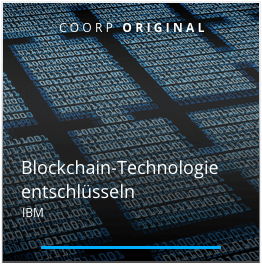
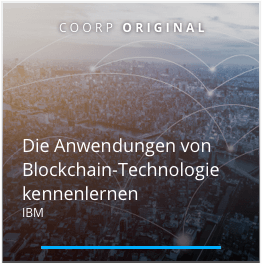
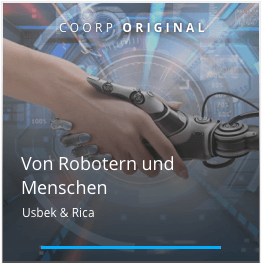

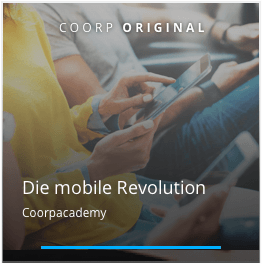

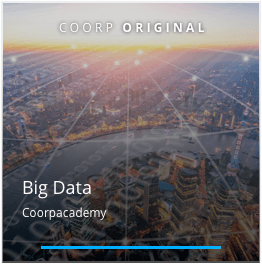
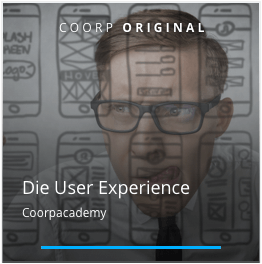
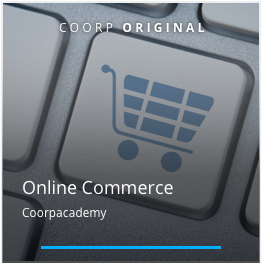

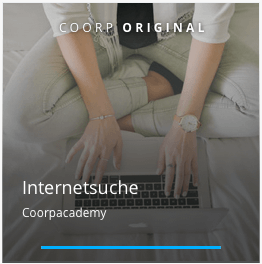
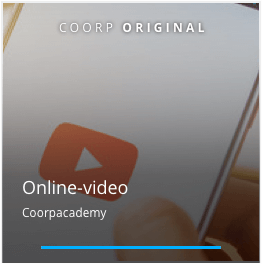

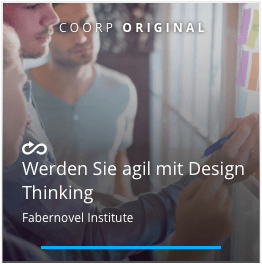
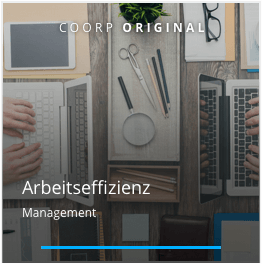
We wish you a great discovery of this catalog in German. Enjoy Learning! Gerne lernen!